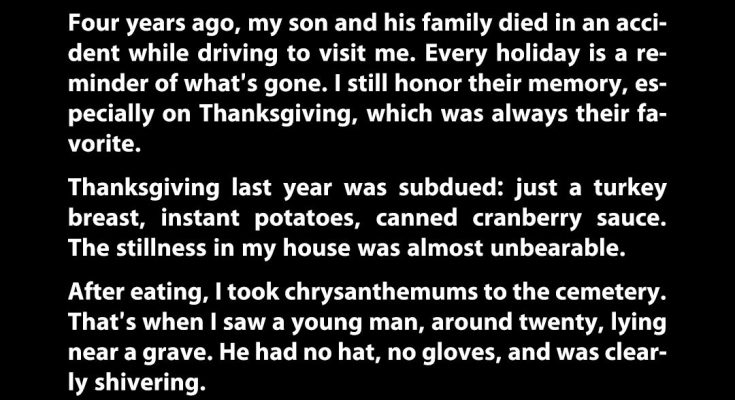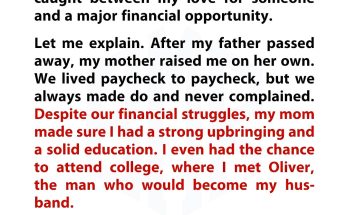It was Thanksgiving, and I was alone again—four years since my husband passed, and the silence still echoed. I visited the cemetery to leave flowers, but as I turned to leave, I saw him: a young man, shivering behind a gravestone, eyes hollow with hunger and fear. “Are you okay?” I asked. He nodded, but his lips were blue. I couldn’t walk away. I brought him home, gave him warm soup and blankets. He said his name was Tyler, and he’d been kicked out after losing his job. I didn’t know it then, but that night would change everything.
At midnight, I woke to footsteps. My heart raced—had I made a mistake? But Tyler stood in the hallway, holding a photo of my late husband. “He looks kind,” he whispered. I nodded, tears rising. Tyler didn’t steal or lie—he cleaned the dishes, helped with chores, and asked about my life. Over the next few weeks, he became part of my routine. I learned he’d aged out of foster care, had no family, and was trying to survive. I saw in him the same resilience my husband had. Slowly, the house felt less empty. I felt less alone.
One day, Tyler asked if he could stay longer—just until he got on his feet. I agreed, and together we built a rhythm. He found a job at a local mechanic shop, saved money, and even started taking night classes. On my birthday, he surprised me with a cake and a card that read, “You gave me a home when I had nothing. I’ll never forget that.” I cried. Tyler wasn’t just a guest—he was family. And in giving him shelter, I’d found healing I didn’t know I needed.
Now, Tyler calls me “Gran.” He visits every Sunday, brings groceries, and helps with repairs. He’s thriving, and I’m proud beyond words. That cold Thanksgiving night gave me more than company—it gave me purpose. Sometimes, the people we rescue end up rescuing us right back. And when I sit by the fireplace, sipping tea, I smile knowing that love doesn’t always arrive wrapped in tradition. Sometimes, it shows up freezing on a cemetery bench, waiting for someone to say, “Come in.”

